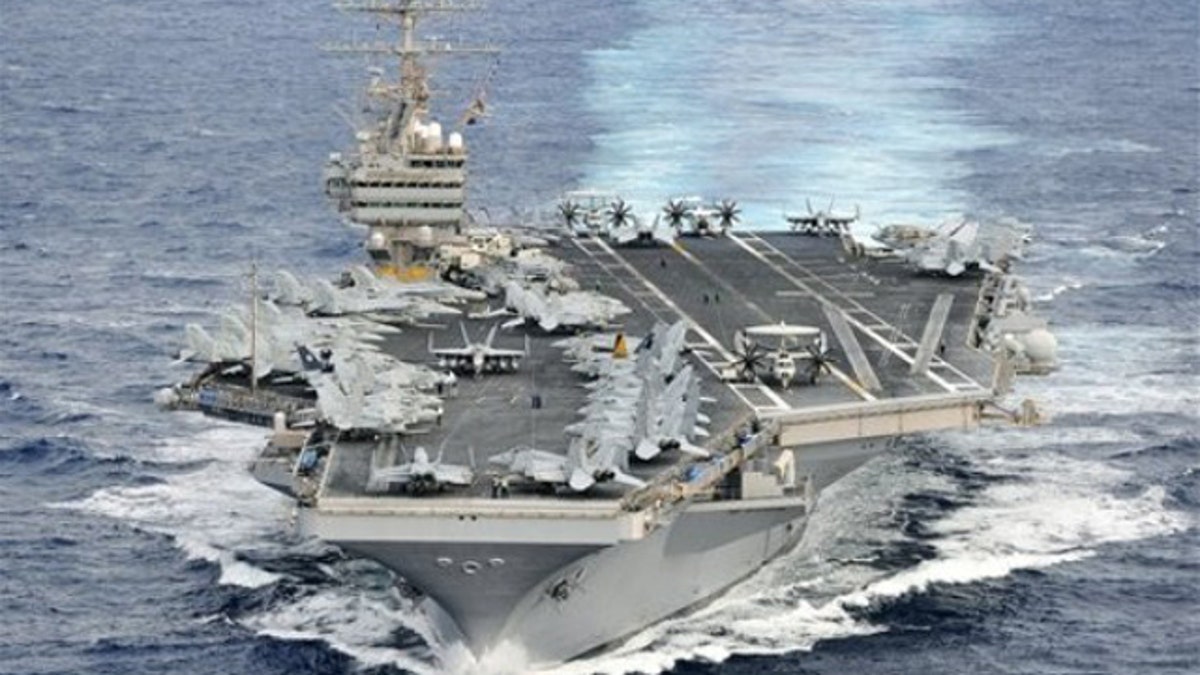
In this photo taken Dec. 16, 2011 and released by U.S. Navy, its aircraft carrier USS Abraham Lincoln (CVN 72) transits through the Pacific Ocean. (AP/U.S. Navy)
WASHINGTON – The USS Abraham Lincoln on Sunday passed through the Strait of Hormuz -- the first time a US aircraft carrier has been through the strategic waterway since Iran threatened to close it earlier this month.
The US Navy said the passage of the vessel was "routine" and had been completed without incident.
"USS Abraham Lincoln (CVN 72) completed a regular and routine transit of the Strait of Hormuz, Jan. 22, to conduct maritime security operations as scheduled and in support of requirements set by the combatant commander," a statement from Naval Forces Central Command said.
"The transit was completed as previously scheduled and without incident."
The carrier was escorted by the guided-missile cruiser USS Cape St. George and two destroyers.
A British Royal Navy frigate and a French vessel also joined the carrier group in what was being seen as a show of strength directed at Tehran about the West's resolve to keep open the route into the Persian Gulf, which lies between Iran and the United Arab Emirates.
A British Ministry of Defence spokesman said, "Britain maintains a constant presence in the region as part of our enduring contribution to Gulf security. Indeed, the Royal Navy has been conducting such patrols since 1980 and operating alongside coalition ships is business as usual.
"On this occasion HMS Argyll and a French vessel joined a US carrier group transiting through the Strait of Hormuz, to underline the unwavering international commitment to maintaining rights of passage under international law."
Iran has repeatedly warned that it could close the strait -- which the US Energy Information Administration calls the "most important chokepoint" for the world's oil tankers -- if increased Western sanctions halt Iranian oil exports.
The situation grew increasingly tense earlier this month when the Islamic republic's navy warned that it would react if the US tried to redeploy one of its aircraft carriers to the waterway.
Defense Secretary Leon Panetta said the US would not tolerate Iran blocking the strategic route and would respond if Tehran crossed that "red line."
Since then, Iran has tried to ease tensions, with Foreign Minister Ali Akbar Salehi saying that Tehran had never tried to close the strait, AFP reported.
"We want peace and stability in the region," Salehi said.
The US, France, Britain and Germany have instigated sanctions after accusing Iran of seeking to build a nuclear bomb. Tehran says its nuclear drive is peaceful.
